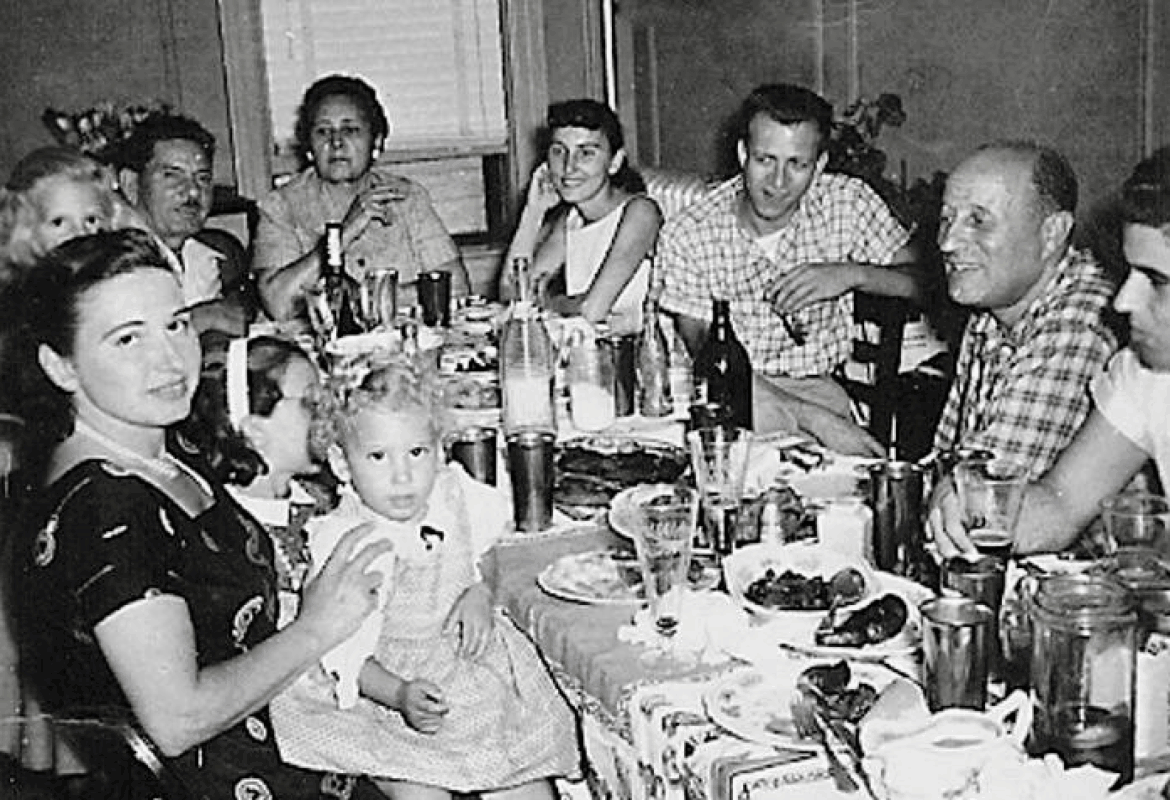By Tony Traficante, ISDA Contributing Editor
I will never forget the wonderful memories of Christmas Day and Christmas Eve with my Italian immigrant family. There was something particularly magical about those times, including the hustle, bustle and chatter that goes on with any Italian social event! We Italians honor our Christmas traditions with passion and great reverence. “Non c’è altro,” there is no other way!
More than any other holiday, Christmas is a time for religious dedication. It also is an occasion to enjoy great food, exchange gifts and strengthen relationships with family, friends and “cumare e cumpare.”
This article first appeared in the December 2021 edition of La Nostra Voce, ISDA’s monthly newspaper, that chronicles Italian American life, culture and traditions. Subscribe today!
And for “I Bambini,” there is nothing better than Christmas. It is a time of excitement and wonder! The same goes for adults who enjoy the season as much as children. And why not! Sharing gifts is another way of expressing one’s love and respect for friends and family members.
Italian families prepare for the Christmas season weeks in advance with a baking marathon of delicious cakes, cookies, pies, and bread. The intoxicating fragrances of vanilla, cinnamon, chocolate and anise linger in the home for days.
In our day, neighbors often helped one another with baking. Mom made sure to set aside a dozen or so cookies for our American neighbors. It couldn’t be helped! They knew she was baking thanks to the escaping aromas that flooded the area. “Se non, sarebbe un vergogna!” If she didn’t, it would be a shame!
In most cases, families baked pastries based on the preferences of their Italian regions. And in some cases, they exchanged recipes. To name a few there were the taralli, pizzelle, ciambelle, mostaccioli, biscotti, struffoli, panettone, cannoli and others!
One of my favorite treats was the tasty fried dough dollops, called “pettole” or “zeppole.” My Mom made them plain, sugared, or mixed with anchovies (my personal favorite).
Click here for Tony’s homemade pettole recipe.
Christmas Eve dinner, “La Vigilia,” was, and is, an incredibly memorable and spiritual celebration. There is no typical Italian Christmas Eve dinner. But many Italian families celebrate the Eve with the most sumptuous meal of baked, fried and sautéed aquatic delicacies. We call it the Feast of the Seven Fishes.
The count of seven fish became the common denominator. However, in other areas of Italy any number of fish are prepared and all with religious significance. The seven fishes may represent Catholicism’s seven sacraments, seven deadly sins or the seven days of creation. Nine fish suggests the Holy Trinity times three, and 11 fish denotes the Apostles minus Judas, while 13 depicts the 12 Apostles, plus Jesus.
Our Eve table was decked out with Mom’s favorite hand-embroidered, ecru-colored tablecloth and napkins. No “mappeen,” napkins, tonight! Sure enough, at the center of the table was a large roasted “capitone” (eel). Other selections included “calamari” (squid) baked with bread stuffing in sauce or fried in rings, and “baccalà, smelts and merluzzo” (cod).
As time went by, the family adapted to satisfy the newer generation and included “la roba piu’ merican.” Shrimp, crab and even lobster were added. No matter the numbers, or type of fish, “Era sempre unmeraviglioso banchetto.” It was always an appetizing banquet!
Side dishes included the typical bowls of “spaghettini,” one with “alici” (anchovies), and the other with a tomato sauce. There also was a variety of salads, fennel, “un muchio di,” crusty Italian bread, and of course, wine. At the end of this smorgasbord came dessert, plus roasted “castagna” (chestnuts) and espresso with a dash of grappa, whiskey or anisette!
The anisette was made by Mom in assorted flavors of red, green, lemon, coffee and clear. I’m not sure just what all the ingredients were, but the recipe included a combination of pure alcohol, small bottles of anisette extracts, and boiling sugar water.
Christmas Eve Day, a day never to forget, ended by attending “La Santa Messa,” the midnight Holy Mass.
“Buon Natale a tutti!” Merry Christmas to all!

